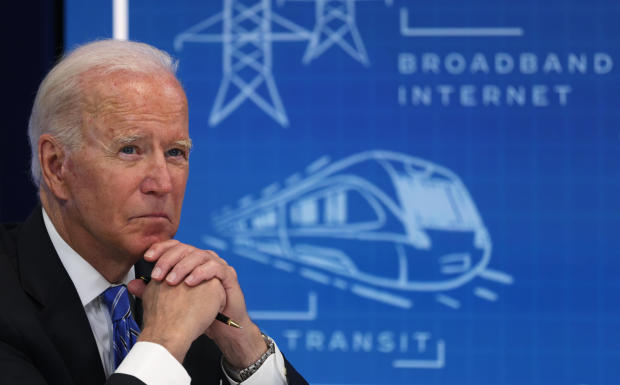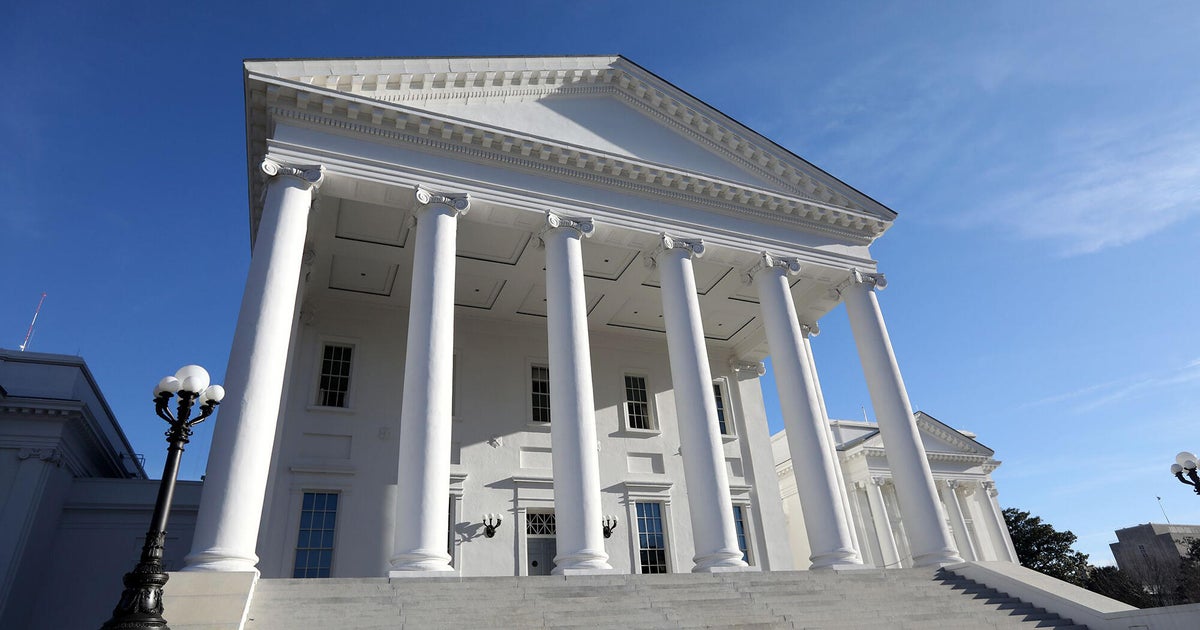Biden says Republicans won't let U.S. default amid debt ceiling standoff
The Biden administration and Democratic congressional leaders are pushing back on Republican lawmakers who have said Democrats will have to go it alone on raising or suspending the debt ceiling. President Biden said Wednesday that he is not worried about the debt ceiling and pointed out that the national debt rose dramatically under the previous administration when Republicans were in power.
"They're not going to let us default," Mr. Biden said in response to a question on the debt ceiling. "$8 trillion of that is on the Republican conscience."
The suspension of the limit for how much the United States can borrow to pay its bills expired at the end of July, forcing the Treasury to use so-called extraordinary measures and teeing up a battle in Washington.
A provision to suspend or raise the debt ceiling was not included in the Senate Democrats' $3.5 trillion budget plan earlier this week despite Senate Minority Leaders Mitch McConnell previously saying it would be likely necessary to include it in the budget reconciliation effort because no Republicans are expected to support it. Now, the Senate and the House are in recess.
The U.S. will likely be able to continue paying its bills through October or November, the Congressional Budget Office recently estimated. But with the coronavirus pandemic, exactly how long extraordinary measures can last is less certain.
"I cannot believe the Republicans will let the country default," Senate Majority Leader Chuck Schumer said on Wednesday. "It has always been bipartisan to deal with the debt ceiling."
Schumer noted Democrats joined Republicans to deal with the debt ceiling three times during the last administration. During the Trump presidency, the national debt rose from less than $20 trillion to more than $27 trillion by the time President Trump left office. Most recently, lawmakers suspended the debt ceiling in 2019 for two years.
But in a letter on Tuesday, 46 Republican Ssenators said they would "not vote to increase the debt ceiling, whether that increase comes through a stand-alone bill, a continuing resolution, or any other vehicle." They claimed it was on Democrats to raise the debt ceiling to accommodate their "out-of-control spending."
Schumer said the debt ceiling was left out of the budget reconciliation because the White House and Treasury Secretary Janet Yellen wanted it kept out of that process because it needs to be kept bipartisan and reconciliation limits what can be done.
Yellen reiterated in a statement on Monday that increasing or suspending the debt limit does not dictate how much the government can spend or authorize future spending but allows the Treasury to pay what has already been allocated. She said the U.S. not meeting its debt obligations would cause "irreparable harm" and argued it should be addressed in a bipartisan effort.
"This is a shared responsibility, and I urge Congress to come together on a bipartisan basis as it has in the past to protect the full faith and credit of the United States," Yellen said.




